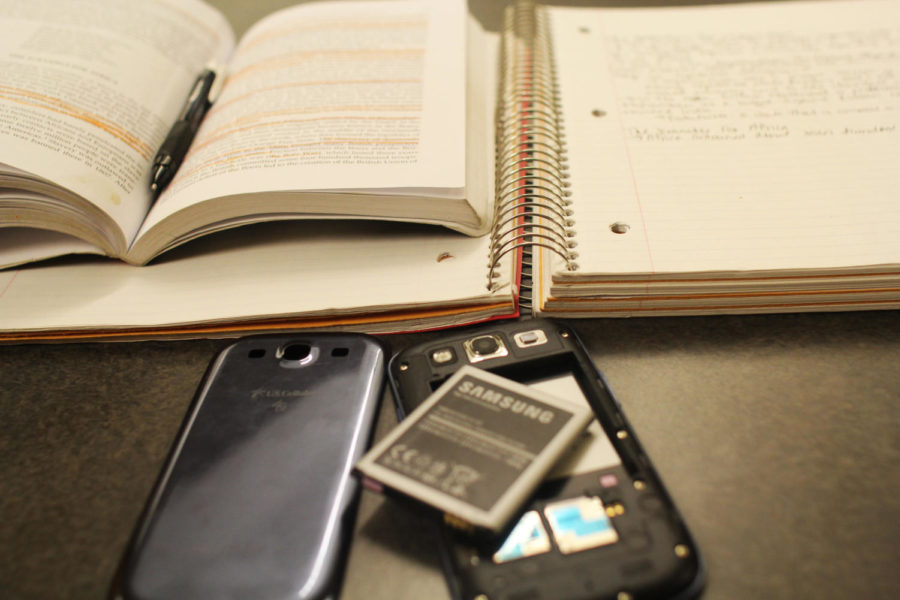Neuendorf: Discover liberating benefits of living cellphone-free
Kelby Wingert/Iowa State Daily
Our technological world, while great for staying up to date with everything that is happening around us instantaneously, can become overwhelming. A potential solution is spending less time using all that technology and being more involved in the world around you.
October 29, 2013
It looks like we have a new epidemic-level addiction on the horizon, and that addiction might be buzzing in your pocket at this very second.
The average person looks at his or her phone 150 times per day. Collected within those 150 glances is 90 minutes of time spent on the device, which adds up to 23 full days every year.
Most will not leave the room, let alone the house, without their phone glued to one of their limbs — you could even say that for most people, it has become an additional limb. Apparently, we need them to exist; these small plastic rectangles of communication have become our lifeline to the world, and without the regular check-up with said lifeline, we feel disconnected and dead.
Arguably, this might not be an issue at all, and yes, there is room for subjectivity. The majority of people have grown to rely on phones in order to function within society with ease. There is no dispute that the mass expansion of technology has simplified our world of business and our means of communication. But we forgot one vital step during this revolution: setting a line over which we would not cross. Now, we are never sure when enough is enough — our lives revolve around our unlimited data plans.
Just because our data plans are limitless doesn’t mean we shouldn’t set some limits on our own terms. For a class, I had to do just that — I had to spend an entire 24-hour period completely without any sort of modern technology. No computer, no iPod, no phone. We have been privileged (or burdened) with the opportunity to be the documentarians with our daily routines, and with this assignment we were only allowed to live our daily routines. To a dwindling few, this task looks like a piece of cake, but to the growing bulk, it is next to impossible. Without filling every open second with web surfing and texting, where does the time go?
Surprisingly, time did not cease to exist; instead, it was filled with eye-opening awareness that people of my generation might especially benefit from. I felt much less dictated by the hands on the clock (or the digital numbers on a screen). Communication was face-to face, instead of face-to-screen-to-screen-to-face. I never quite understood how trapped I was by my phone until I was free of it.
The clock is what runs our lives. We live in an inescapable partnership with time, but what makes that relationship strenuous is how time has been able to constantly taunt us, significantly more now that we are growing up and have a digital clock attached to us ticking each second by, and all we can do is either work with it or procrastinate.
No, we will never rid this fiend; survival in the modern world depends on time frames and deadlines. But what we can do is relax it a little, by checking the time on the phone less often and not being so stingy with how our life correlates with the hands of the clock.
The chance to connect with others is the biggest benefit of disconnecting from devices. This is the most cliché argument against cellphone dependency, but that does not mean it is not the most important. I can’t speak for anyone else, but I know for a fact that the majority of my friendships primarily live within the screen.
Although this might very well become the norm somewhere down the line, it is in my eyes one of the greatest social tragedies. No one can deny that having a conversation and seeing someone’s reactions in the flesh is more meaningful than the ambiguous conveyance brought about by texts, calls, or the like. Ironically, the cliched and singular answer is to put the phone away.
Cutting yourself off from technology cold turkey is extreme, but when the detox only lasts a day, it is painless and capable of producing astounding results. I would urge everyone to try depriving themselves of their little smart-friend for just a day to see how they feel. You might feel bored; you might feel anxious; or you might feel liberated. Whatever the feeling, it won’t hurt to change your routine just a bit.

















